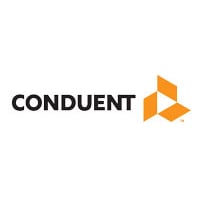The GC Powerlist returns for its fifth annual report after launching back in 2013 and once more the format has evolved. While partially returning to the rising star model we used back in 2014, the 2017 edition has become a two-hander under the unifying title, The Clients of Tomorrow.
On one hand we have, following months of research, identified 55 outstanding individuals working at established companies active in the UK. This group is focused primarily on the in-house counsel fast establishing themselves in the middle ranks of their teams, typically in their 30s or early 40s. …read more
But, in a departure, the second strand of the research focuses on high-growth companies with the prospects to be the global giants of tomorrow. These are largely, though not exclusively, businesses underwritten by technology. As such some of the conventional measures of success have to be adjusted. Many of the businesses we cite already have nine or even ten-figure valuations despite having relatively small revenues and staff rosters. But growth, and the potential to shake up their industry, marks them out as names to watch and clients to covet.
The revolution in legal teams and the role of in-house counsel at plcs has already been widely chronicled – but the recent emergence of ultra-fast-growth companies that can turn an industry on its head in half a decade means we are only beginning to gauge how in-house counsel will evolve for the age of Uber. (One early indication is the recent formation of the new networking and support group, Disruptive GCs, for the lawyers operating in such environments.)
Not only do such lawyers have nothing like the support or specialist skills enjoyed by their brethren in bluechip-land, they often face huge regulatory challenges in businesses that are either way in front of established law, or are attracting antagonism from national agencies (tech-driven businesses tending to cross borders and inflame local interests).
Researching across such wide-ranging sectors and institutions is obviously not an exact science, though we dedicate substantial editorial resources to this report. Even with months of research, there will clearly be many talented individuals and companies to watch that have escaped our notice. But we feel confident that the names included in this report constitute some of the most promising in the legal industry, and many that will be defining the UK and European legal market in the next ten years and more.
How successfully City law firms, who are in the main used to focusing on large, bureaucratic businesses, manage to adapt to such institutions and a new breed of emerging general counsel with different values to the generation before them, will do much to separate the winners from the losers in the legal industry.
Alex Novarese
Editor-in-chief, Legal Business and The In-House Lawyer
In the meantime, in-house counsel continue to assert themselves across such new terrain. Many are only getting started.

2016. The year that turned the world on its head. And when the world is spinning on that axis too, you can bet your bottom euro that good lawyers will be at the heart of the action.
It is also a safe wager that the lawyers featured in the pages of this year’s GC Powerlist are the ones who are best at navigating their organisations through what are now very unpredictable economic, social and political waters.
Lawyers from both in-house and private practice are in an enviable position right now, in the UK at least, to prove what they can contribute to the businesses they support.
Once very much the preserve of US corporates, the phenomenon of the lawyer as integral to the c-suite has become less of an oddity in the UK over the last five years. The more progressive, higher-performing general counsel (GCs) now occupy what is increasingly a business role – being the ‘general counsel’ and not just the ‘legal counsel’. Legal is still integral, of course, but business comes first. The pages of the GC Powerlist – not just this year, but every year since 2013 – bear testament to the fact that commercial awareness is now the number one requirement.
In fact, such are the particular demands placed upon GCs that we are arguably in a position where in-house is becoming a discrete subset of the legal profession. That is a whole other debate, but one I believe will increasingly be aired.
In the meantime, there are some fairly significant issues for businesses on the horizon. But with issues for businesses come opportunities for lawyers.
GDPR
The General Data Protection Regulation (GDPR) is going to be very onerous, with legal having a pivotal role to play to make sure the core systems and processes match up to the massively-increased regulatory demands. Of course, the advent of GDPR is no surprise and the best of the best will have already been playing the game for a long time.
Europe
And then, of course, Brexit presents probably the most significant legalistic business issue in a generation.
With article 50 likely to be triggered before this publication hits desks, the challenges for many companies – and the lawyers advising the boards of those companies – will become inescapable. And there is only one complete financial year left for all businesses to respond.
Of course, the best GCs are already fully in tune with the current and potential issues in their supply chain, their product and service catalogue, and their customer list, as well as in relation to their staff. And they are already hand in glove with the board, advising on how to ringfence, mitigate and hedge against exit risks.
The future
Throughout the four years of its existence, the GC Powerlist has tracked the trajectory of in-house lawyers. In that relatively short period, many have made the desired leap from ‘c-suite outsider’ to being integral members of the top team. For those who have not yet bridged the gap, if ever there was an era for demonstrating your value as a business person first, then that era is now. The same goes for private practice: demonstrating genuine business acumen, understanding and long-term vision will be ever more essential.
So, how do we see the role of the in-house lawyer developing?
Well, undoubtedly, technology will become far more significant. In a world where all businesses’ focus on efficiency is more acute, the pressure on lawyers – whether in-house or private practice – to look for smarter solutions, often delivered through tech, will only grow.
There is a risk here for law firms. Increasingly, commoditised work, once the preserve of law firms, is being done far more efficiently through technology such as AI. That is a threat to traditional practices. But it is also an opportunity for forward-thinking advisers to take stock, reassess their relationships with their in-house clients and focus on delivering high-end business value.
Does technology spell the end of lawyers as some commentators have argued? No, not at all. Will it precipitate the evolution of a different kind of lawyer? Absolutely.
And for many – not least those included in the GC Powerlist – that evolution is already well advanced.
We are proud to have sponsored the GC Powerlist since its inception. It is the benchmark of quality and a reminder to private practice firms like ours that the expectation of our clients is only heading one way.
Congratulations to all those who have made the list.

A warm congratulations to all of the nominees at the Legal Business Awards and especially to those of you who have made the GC Powerlist. We’re delighted to sponsor such a prestigious awards ceremony as well as celebrate top UK GCs.
The increased recognition and attention the in-house community has received over the past few years has been a joy to witness and is much deserved. Axiom has long believed that the future of law lies with those who lead teams and use legal services every day. Axiom exists to enable in-house teams to become as efficient and effective as possible, and to empower lawyers to meaningfully develop their careers by working with top in-house clients – including a large number of those in the Powerlist. Whether through the secondment of top-quality legal talent, better mass contract management to respond to regulatory change or undertake corporate transactions, or any of the ways in which we strive to support in-house counsel, we’ve always searched for the best, most innovative ways to deploy legal services.
Finally, we’d like to thank Legal Business for nominating us for Legal Innovator of the Year. We’re honoured to be listed alongside fellow legal innovators. Axiom set out to create a new category of alternative legal services through the unique ways in which we partner with in-house counsel, and we’re thrilled that the in-house community embraced the change and enabled the growth of that category into the many variations that exist today. Axiom is a category creator and the in-house community enabled this category.
For that, we are thankful – and we’re excited to see where we can continue to innovate together to bring meaningful progression to the legal industry.
Long may it continue.

Conduent Legal and Compliance Solutions (formerly part of Xerox) provides integrated data analytics, technology and expert professional services to help solve your litigation, investigations, compliance and business problems, and make the best decisions possible.
With more than a decade of experience in delivering technology-enabled e-disclosure and
compliance services, we offer expertise and a flexible range of options to meet the needs of any matter, or across all of your matters. From select services to support your existing capabilities to completely outsourced solutions, we help you improve how the work itself gets done, saving you time, cost and effort.
With data centres throughout the US, Europe and Asia, Conduent combines local knowledge and capabilities with global reach.

1. Have a plan and be proactive
It is important to have a career plan as the only person responsible for managing your career is you. If you cannot grow and develop within your own organisation (and often you can), think about whether you need to make a move. Talk to other in-house lawyers and if you are junior, find a mentor. A good recruiter will also advise you on career planning and what clients are seeking. Be strategic and keep growing.
2. Keep developing your skills
The longer we are in a role, the easier it is to stop growing personally and professionally. Volunteer to get involved in new initiatives and projects within your organisation. Do some volunteering or mentoring. Broaden your geographical coverage and experience. Choose wisely so that these new skills complement and enhance your existing skills.
3. Build your profile – internally and externally
As an in-house lawyer, it is key that you build your profile both inside your organisation and within the wider market. If you are asked to speak or participate in a round table, if it is the right forum, make sure you accept. If there is an opportunity to get involved in an industry association or body, take it. Lastly, make sure you have an up-to-date profile on LinkedIn, listing your most recent achievements.
4. Make sure your CV reflects
All your achievementsMake sure your CV is up to date and includes all new initiatives and projects in which you have been involved. Also include your promotion history. Clients want to see growth and an upward trajectory. Finally, make sure you are comfortable discussing your achievements and your role.
The Legal 500’s first Asia-Pacific Corporate Governance Summit invited 150 of the region’s top general counsel to examine key topics through the lens of how they advise the key decision-makers at their organisations. Securing the vast international expertise of Baker McKenzie to assist us in putting together the schedule, we were extremely pleased with the day’s events. As well as the pre-planned discussions, conversations which followed during the networking parts of the day were incisive and open, which acted as a ringing endorsement of the excellent work done by those who moderated the discussions.
When creating the agenda, we decided the perfect way to begin would be to chat to some excellent GCs about their opinions on some of the key issues raised over the rest of the agenda. We were delighted that Lily Tsen of Amcor and Jasmine Karimi of FMC agreed to be Joe Boswell of The Legal 500’s sparring partner for what was an excellent session. Utilising the extensive expertise of the two in-house lawyers, the session successfully touched on significant issues to be covered later, in particular the importance of incorporating governance seamlessly into social and environmental goals.
Richard Lustig and Min-tze Lean of Baker McKenzie took charge of our next session which took a look into the boardroom at directors’ liabilities and shareholder activism. Jasreen Singh of dwp, Jacelyn Chan of foodpanda and Jeffery Tan of Jardine Cycle & Carriage provided excellent counterpoints to the issues raised by Lustig, with a conversation on personal liability for non-compliance generating extremely rewarding takeaways.
The next panel was on that boasted a wealth of experience to bring to bear on a subject that always carries deep resonance, that of ESG expectations. Alongside Andrew Zaw, Christine Cuthbert and Napatorn Dasananjali Termglinchan of Baker McKenzie, three highly knowledgeable GCs were on hand to give their views: Matt Kasdin of Maxeon Solar Technologies, Gladys Chun of Lazada Group and Felix Tse of Pavilion Energy.
A change of pace came with our next panel as we turned our attention to the M&A space. On stage, Mini vandePol, Xiaohui Ting, Daniel Pardede and Shih Hui Lee of Baker McKenzie, and Cathy Chan of CBRE Investment Management and Alex Liam of Sustainable Metal Cloud looked into both old and new due diligence requirements in the M&A space. The discussion was tailor-made to give audience members the best chance of getting their next deal over the line and consolidated.
Reputation safeguarding was the order of the day for the next panel session, which ended up delving into a range of scenarios for protecting the name of a company whether an issue has developed or is developing under the surface. As well as practical examples of crisis management situations that our panel had been involved with, a good deal of time was spent discussing the social media dimension, and the right way to mitigate risks related to this. Georgie Farrant and Henry Chen from Baker McKenzie, Su Hui Tan of Michelin, Tim Jackson of Vale and Andrew Ong of Kone took part in this panel, with Henry Chen providing a particularly interesting set of recommendations for companies operating in Mainland China.
Our final session focused on the extremely popular topic of AI, one which always stimulates an interesting conversation and new insights. This was no exception, with panellists Andrew Liew of The Coca-Cola Company’s Bottling Investment Group for Singapore, Malaysia & Brunei, and Ashish Chugh, Eddie Chuah, Ken Chia and Manh Hung Tran of Baker McKenzie fielding a number of insightful and poignant questions from our audience.